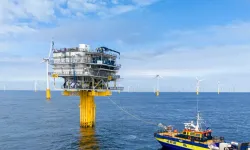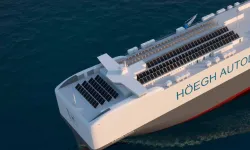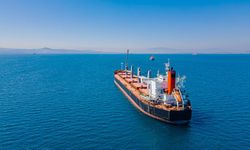Crews lifted the last large piece of the downed Francis Scott Key Bridge, which had been blocking the Patapsco River’s main shipping channel, yesterday morning.
Key Bridge Response Unified Command teams are now preparing to use dredging buckets and a large salvage grab to remove smaller chunks of debris from the water, aiming to fully reopen the channel this weekend.
The National Transportation Safety Board (NTSB) in the US released a preliminary report last month on the Dali’s catastrophic collision with Baltimore’s largest bridge.
The vessel, managed by Synergy Group and chartered by Maersk, experienced electrical blackouts about 10 hours before leaving the Port of Baltimore and again just before it collided with the Francis Key Bridge, resulting in the deaths of six construction workers.
The first power outage occurred when a crewmember mistakenly closed an exhaust damper during maintenance, causing one of the ship’s diesel engines to stall, investigators reported. Shortly after departing from Baltimore, the ship crashed into one of the bridge’s supporting columns due to another power outage, clearly captured on video, which caused a loss of steering and propulsion.
The NTSB stated that the fatal outage occurred about four minutes before the crash when electrical breakers unexpectedly tripped, leading to a loss of power to all shipboard lighting and most equipment while the vessel was 1 km from the bridge.
The Dali crew managed to restore power, but another blackout occurred about 320 meters from the bridge, halting all three steering pumps. Consequently, the crew was unable to steer the vessel.
Plans are being developed to construct a replacement bridge by 2028, while insurers have warned that the Dali accident could result in one of the largest marine insurance claims in history.







